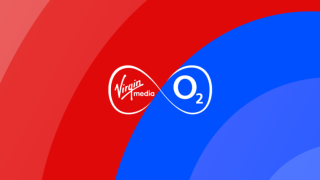In a pair of separate announcements, both Ericsson and Nokia said they had contracts for the company’s plans to make 5G available to 75% of the Spanish population by the end of 2020.
Joaquín Mata, CTIO of Telefónica Spain, said in Nokia’s announcement: “We are delighted to work with Nokia on our nationwide 5G deployment across both urban and rural regions of Spain. We anticipate that 5G will have a game-changing impact on both consumer and business segments and Nokia’s state-of-the-art 5G equipment will help us to deliver best-in-class experiences to our customers.”
In Ericsson’s announcement he was briefer: “The launch of our 5G network constitutes a leap forward towards the hyper connectivity that will change the future of Spain. We are very pleased with the collaboration with Ericsson to build one of the best 5G networks in Europe.”
Telefónica has moved within a few years from being a strong fan of Huawei to a company that – at least in its European networks – shuns it. The company had already decided to use Nokia and Ericsson for its O2 operation in the UK, a move that will make it immune to the UK government’s decision to ban all purchase of Huawei kit after the end of 2020.
Between January and July the UK toughened its rules on Huawei in 5G networks from a strict limit to an outright ban.
Other European governments have not gone so far, but operators – such as Deutsche Telekom – have notably left Huawei out of announcements. Last month the Indian government told operators not to use Huawei, though that decision is coloured by military action on the Indian-Chinese frontier.
In December 2019 the Reuters news agency reported it “plans to drastically reduce the amount of equipment it buys from … Huawei for the core of its next-generation mobile networks in Europe.
The agency quoted group CTIO Enrique Blanco, and noted: “Until now, Telefónica has relied entirely on Huawei for its core 4G networks in key markets of Spain and Germany, but under the new strategy, this will disappear by 2024.”
Telefónica’s decision follows that of Orange, which decided to give its 5G business to Ericsson and Nokia in France, with a geographical split between the two suppliers. Other European companies have followed suit.
Tommi Uitto, president of mobile networks at Nokia, stated: “We look forward to extending our long-standing relationship with Telefónica into the 5G era and introduce a range of compelling new services across Spain. We will help Telefónica execute its strategy and deliver compelling and transformative experiences, using Nokia’s 5G solutions for businesses and consumers.”
Arun Bansal, president of Ericsson Europe and Latin America, said: “With our leading technology, Telefónica will offer its customers 5G faster and support them to reach 75% coverage of the population by the end of the year. With our swift 5G roll-out, Spain is ready for the next digital revolution and Ericsson is proud to be powering it together with Telefónica.”






